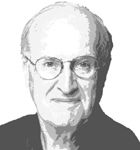Commentary: The Sky is Falling!
Pharmaceutical Executive
If I had a dollar for every time I heard the word crisis used to describe the healthcare system of one country or another, I would be rich. And with the '08 elections revving up, we can expect to hear a crisis chorus from many presidential and congressional candidates wise to the fact that healthcare often ranks as voters' No. 1 issue.
If I had a dollar for every time I heard the word crisis used to describe the healthcare system of one country or another, I would be rich. And with the '08 elections revving up, we can expect to hear a crisis chorus from many presidential and congressional candidates wise to the fact that healthcare often ranks as voters' No. 1 issue.

Humphrey Taylor
But the "crisis" is not limited to the United States. A January issue of The Economist, for example, reported that "the NHS [Britain's National Health Service] remains in a state of permanent crisis despite all the money that has been lavished on it." A few years ago, Bernard Kouchner, former French minister of health, described how—at the time when the WHO had rated the French healthcare system the world's best—there were demonstrations almost daily outside his offices protesting something the healthcare system was or was not doing for patients or healthcare workers.
Of course, many of the criticisms—especially of our own system—are perfectly valid. Study after study has shown that America has the least efficient and most inequitable system in the developed world, as well as the most expensive and one of the most unpopular. It compares unfavorably with most other nations' on three key criteria: cost, quality, and access. However, even if we were able to significantly upgrade our system, so many unmet needs and insoluble problems would remain that cries of a healthcare crisis would be unlikely to lessen.
One problem is that our politicians don't level with us, and we may not even want them to. They suggest that they can fix the healthcare system so that people will be generally satisfied with it. I believe that this is virtually impossible. Of course, all systems can be improved, and many (if not our own) are in fact improving. But the public always wants more access to better care at an affordable cost as well as the security of believing that the system will be there for them when they and their families get sick in the future. Even significant improvements will never fully satisfy all their needs as they perceive them.
And that is not all. The more light we shine on the quality of care, the more examples of poor care and poor providers we will find. Drug safety will always be an issue, and new drugs will always have unpredicted and unpleasant side effects. Medical care and pharmaceutical drugs may be better and safer than ever, but no system can ensure perfection.
As for rationing care—dirty words in the free-market USA—every system does it. Limits are placed on reimbursement and the supply of physicians, hospitals, expensive diagnostic tools, and other technologies. Unfortunately, our politicians are loath to admit this. A growing number of other countries' agencies (with NICE, the National Institute of Clinical Excellence in Britain, being the best known) are starting to use research to determine which treatments are more or less cost-effective—and deserving of reimbursement. I call this rationing; our pols do not.
In the 1960s, British Minister of Health Enoch Powell said what most officials have been conspicuously unwilling to say: that "there is virtually no limit to the amount of healthcare an individual is capable of consuming." In other words, finite resources cannot satisfy potentially infinite demand. Therefore, we will always have to ration care. Patients and their physicians will always want more treatments than governments or employers are willing to pay for.
Healthcare spending has grown faster than GDP in every developed country in every decade for at least 60 years. The main drivers of this growth remain the same: medical advances, a growing economy, and the aging of the population. In addition, the public perceives that healthcare is "a superior good." Year after year, Harris Polls show that the public views healthcare as the best way to spend new money generated by economic growth—better than spending more on education, defense, cars, food, clothing, shelter, entertainment, or anything else. Increased spending on medical care is the logical response to public opinion, even as we disagree about who should pay for it.
Policymakers everywhere are trying to contain costs and provide affordable access to high-quality care. While we can—and, I hope, will—do much to better our system, the only true solution to our perpetual healthcare "crisis" would be to find affordable ways to prevent and cure all diseases, eliminate pain and disability—and beat death. Until then, it is a safe assumption that most healthcare systems will almost always be, yes, in crisis.
Humphrey Taylor is chairman of the Harris Poll, Harris Interactive. He can be reached at htaylor@harrisinteractive.com

Addressing Disparities in Psoriasis Trials: Takeda's Strategies for Inclusivity in Clinical Research
April 14th 2025LaShell Robinson, Head of Global Feasibility and Trial Equity at Takeda, speaks about the company's strategies to engage patients in underrepresented populations in its phase III psoriasis trials.
Beyond the Prescription: Pharma's Role in Digital Health Conversations
April 1st 2025Join us for an insightful conversation with Jennifer Harakal, Head of Regulatory Affairs at Canopy Life Sciences, as we unpack the evolving intersection of social media and healthcare decisions. Discover how pharmaceutical companies can navigate regulatory challenges while meaningfully engaging with consumers in digital spaces. Jennifer shares expert strategies for responsible marketing, working with influencers, and creating educational content that bridges the gap between patients and healthcare providers. A must-listen for pharma marketers looking to build trust and compliance in today's social media landscape.
Pfizer Discontinues Development of Danuglipron for Chronic Weight Management
April 15th 2025Despite meeting key pharmacokinetic goals, a potential case of drug-induced liver injury led Pfizer to conclude that danuglipron’s risk-benefit profile did not support further development for chronic weight management.